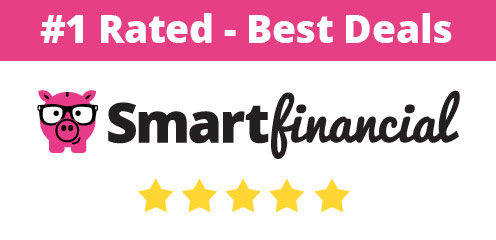Losing your job can be stressful. That’s true at any time, but especially lately with the lingering coronavirus. It’s natural to worry about things like lost wages, health insurance and paying the bills at a time like this.
The good news is there are resources that can soften the blow and provide some form of security until you find employment elsewhere, including unemployment insurance, COBRA coverage and health savings accounts.
Learn more about benefits you may be eligible for, ways you can receive discounts and strategies to cut costs.
Unemployment benefits
Several state and federal programs exist to help Americans who have lapses in employment, says David Weiler, development director at Allsup Health Insurance Services in Belleville, Illinois.
One of these programs is unemployment insurance. These state programs offer temporary cash benefits to workers who qualify.
Each state creates its own requirements for:
- Benefit amounts
- Eligibility
- Length of benefits
In general, states calculate unemployment insurance benefits based on what you made over a recent 52-week period.
Most states provide up to 26 weeks of unemployed cash benefits and these benefits are intended to replace around half of your former wages. The Brookings Institution estimates that the weekly unemployment insurance payments before the coronavirus hit averaged $387.
Congress passed the CARES Act in 2020, which was designed to expand unemployment protection from 26 weeks to 39 weeks during the COVID-19 crisis. Some states also have extended unemployment insurance benefits on their own.
Not everyone without a job can get unemployment benefits. To qualify for unemployment insurance, you must not have left your job voluntarily. You also can’t be seeking a first job, be looking to reenter the workforce after leaving voluntarily or be a gig or self-employed worker.
To apply for unemployment benefits, contact your state’s unemployment insurance program soon after becoming unemployed. Be prepared to provide personal and employment information completely and correctly to avoid a delayed benefits claim.
States can take up to three weeks filing a claim to send your first unemployment insurance benefit check.
For you to continue to collect, you must also actively look and be available for work. You may additionally need to report to your local unemployment insurance claims office on a date and time they schedule for you.
COBRA health insurance benefits
People who lose employer-based health insurance coverage may qualify for COBRA (Consolidated Omnibus Budget Reconciliation Act) benefits. COBRA enables recently unemployed people who worked at a business with at least 20 employees to keep their former employer’s group health insurance plan for a limited time.
“A former employee’s COBRA coverage lasts for up to 18 months, and in some cases such as Medicare entitlement for the former employee, the dependents could qualify for as much as 36 months of COBRA coverage,” says Weiler.
Getting a COBRA plan allows you to keep your former employer’s plan, but it comes at a cost. Employers typically pay more than half of health insurance premiums for employees. However, employers don’t contribute to COBRA plans, which means you have to pay all of those costs and a 2% administrative fee. Find out more about COBRA costs.
People who worked at small businesses don’t qualify for the federal COBRA benefits, but most states have so-called mini-COBRA protection that helps former employees of small companies. Find out more about state-specific COBRA laws.
Note that if you decide to cancel your COBRA coverage before benefits expire — such as switching health care plans or getting a new job that provides health insurance — you’ll need to contact your old employer’s human resources department and inform them.
“Or, you can simply stop paying monthly COBRA premiums, which will terminate the coverage,” adds Weiler.
You don’t have to accept COBRA when you lose coverage. You may also qualify for Medicaid or a cheaper individual health plan with good benefits through the federal Health Insurance Marketplace; visit Healthcare.gov to explore these options and your ability to qualify.
“The whole intent of the Affordable Care Act was to create an affordable solution for receiving health coverage, which is what many families need right now. Both the Health Insurance Marketplace and Medicaid could offer premiums or subsidize premiums far below what you would pay for COBRA premiums,” Mark Waterstraat, president of Consumer Solutions for Boston-based Alegeus, says.
However, opting for COBRA may be a smarter move than shopping for a plan elsewhere.
“Employer-sponsored health plans often provide more generous benefits than many individual market plans,” says Waterstraat. “It can be a lifeline for those with chronic conditions or those who want to stick with their current in-network provider. It’s also ideal for those on a high-deductible health plan who had already met their deductible for the year, as COBRA allows them to continue receiving 100% coverage for qualified medical expenses for the rest of the year.”
Going on a spouse’s health plan
A likely cheaper alternative to COBRA is getting added to your spouse’s health plan. If your spouse’s employer offers coverage, putting you onto the plan may raise rates, but that will likely pale in comparison to paying for a COBRA plan.
However, before getting added to a spouse’s plan, make sure your providers accept the health plan.
Short-term health plan
A low-cost alternative is a short-term health plan. Most states allow these plans, which last up to a year and can extend the plan for two more years.
The downside to short-term plans is that they don’t have to follow Affordable Care Act regulations, so they offer limited benefits. Most short-term health plans don’t provide mental health, maternity and prescription drug coverage.
The plans are inexpensive but can have high out-of-pocket costs when you need care. So, you’ll want to weigh those costs before signing up for a short-term health plan.
Find out more about health insurance if you’re unemployed or changing jobs.
Health savings accounts and unemployment
If you had a health savings account (HSA) before losing your job, you can use your HSA to help with COBRA coverage.
“An HSA is a tax-free savings account under a high-deductible health plan that can be used to pay for medical costs that aren’t covered under a health plan or to save for future medical expenses,” says Weiler. “Be aware that HSAs can only be used on qualified health expenses, which usually does not include insurance premiums. However, the IRS will allow you to use your HSA funds toward premiums for COBRA, Medicare (Parts A and B) and other health care plans while receiving unemployment assistance from the government.”
Jacquelynn Neat, benefits specialist with Employee Benefit Professionals in Overland Park, Kansas, points out that you don’t pay income taxes on HSA withdrawals.
“Plus, you won’t be subject to the 20% penalty that normally applies to HSA withdrawals that aren’t used for qualified medical expenses,” says Neat.
Sherry Olson, vice president of human resources in the health and employee benefits division of Portland, Maine-headquartered WEX, Inc., points out that you can spend your HSA funds at any time. That includes paying COBRA premiums and qualified health care expenses.
“The beauty of HSAs is that they are there to help you cover unexpected health care costs when you need it the most,” she says. “Our consumer research shows that many people view their HSA as a safety net that can help make an unexpected medical issue or change in employment status less stressful.”
If you were enrolled instead in a flexible spending account (FSA) before enrolling in COBRA, you may still be able to tap into your FSA funds.
“Generally, claims incurred after you become eligible for COBRA are not eligible for reimbursement unless you re-enroll in the FSA through COBRA,” says Olson. “Plan designs are flexible, so it is best to check with your employer about your ability to submit claims incurred before the event that qualified you for COBRA. It is worth taking that extra step to be sure you have every opportunity possible to use FSA funds you had set aside.”
Life insurance and unemployment
You typically lose employer-sponsored life insurance when you lose your job.
“Usually when life insurance is offered as an employee group benefit, you will receive a letter from the life insurance provider after your termination date,” notes Janet Ruiz, director of strategic communication for the Insurance Information Institute in San Francisco. “This letter will allow you to continue your life insurance and offer prices for the coverage. You will have a date that you will need to reply by to take advantage of that offer.”
Greg Klingler, director of wealth management at the Government Employees’ Benefit Association in Washington, D.C., advises getting individual life insurance coverage, so you don’t rely on an employer-sponsored policy.
“For those employees who are in good health, I generally recommend individual life insurance because it can be customized to your benefit needs. Most group plans alone do not provide an adequate level of coverage to an employee anyway,” Klingler says.
Auto insurance and unemployment
Even if you lost your job, you’ll still likely need your car and auto insurance. But you may be able to lower your auto insurance premiums.
“If you no longer commute to work, be sure to let your auto insurance company know what your new average mileage is. This may result in a lower premium for you,” suggests Ruiz. “Miles driven is one of the factors that goes into determining your premium.”
Your premium may drop even lower if you relocate to a different location following a job loss.
“Your new location may have lower accident incident rates, for example, which could equate to lower premiums. Give your insurance agent a call or go online to talk with your insurer to find out,” Ruiz adds.
Home insurance and unemployment
You may be wondering: Now that I’ll be home a lot more while unemployed, can I get a homeowners insurance discount? Probably not, say the experts.
“It’s easy to assume that being home more often will result in a lower risk of burglary, fire or home damage. However, this is not a rating factor that insurers value,” says Ruiz. “If your home was completely vacant previously and now you occupy it full-time, that would be a rating factor that could result in a lower premium. But you would have to check with your insurance provider to be sure.”
One way to possibly decrease your homeowners insurance premiums is to make home improvements.
“Since you will be at home more, you may have extra time to make upgrades to your home that would qualify for discounts. These can include upgrading utilities, adding a central alarm system, installing a water leak detection device, implementing an automatic shut off for gas and more,” Ruiz says.
Other insurance tips for unemployed
Losing your job affects your finances and usually your insurance. Here are some tips to soften the blow:
- Inquire about a reduced healthcare bill or payment plan. “If you get a bill from a hospital or provider that you can’t afford, don’t completely give up hope or pretend you didn’t get it in the hopes it will go away. That will only result in you being sent to a collections agency. Ask about a discount or extended payment plan based on your extenuating circumstances,” recommends Waterstraat.
- Take advantage of an employee assistance program (EAP) benefit. “When you experience a job loss, emotional and financial stress can be overwhelming. Many employers offer EAPs for free. Ask your last employer’s human resources department to provide you with this information, if available,” advises Neat. “EAPs are designed to help people find the resources and mental health support they need when experiencing many hardships.”
- Inquire about targeted relief funds available. “During this time of need, we are seeing many employers and health plans exploring creative ways to help impacted employees and plan subscribers by providing targeted relief funds through easy-to-use consumer debit card programs,” Waterstraat says. “Ask your employer’s human resources department if they offer such a benefit.”
- Find out if your community offers resources or services. There may be a community-based organization or church that provides food, monetary assistance or other benefits to people in need.
Losing employment can cause stress, but by using these tips and taking advantage of unemployment benefits and insurance, you can lessen the pain associated with losing your job.










